| 1 x afterRenderRawModule mod_articles_category (READ MORE...) (2.41KB) (28.37%) | 69.24ms |
| 1 x afterRenderComponent com_tags (1.35MB) (24.47%) | 59.74ms |
| 1 x afterRenderRawModule mod_tags_popular (Search) (42.2KB) (20.49%) | 50.01ms |
| 1 x afterInitialise (1.28MB) (7.56%) | 18.44ms |
| 1 x beforeRenderRawModule mod_articles_category (READ MORE...) (439.86KB) (5.08%) | 12.39ms |
| 1 x afterRoute (826.27KB) (3.1%) | 7.57ms |
| 1 x afterRender (249.54KB) (1.89%) | 4.62ms |
| 1 x afterDispatch (27.47KB) (1.4%) | 3.42ms |
| 1 x After Access::preloadComponents (all components) (103.05KB) (1.04%) | 2.54ms |
| 1 x beforeRenderRawModule mod_custom (Chronic fatigue tied Alan to his bed but Q10 capsules saved him:) (244.28KB) (0.81%) | 1.99ms |
| 1 x afterRenderRawModule mod_finder () (128.59KB) (0.64%) | 1.57ms |
| 1 x afterRenderRawModule mod_languages (Sprogskift) (28.17KB) (0.59%) | 1.44ms |
| 1 x afterRenderRawModule mod_menu (Main Menu - English) (186.95KB) (0.56%) | 1.36ms |
| 1 x Before Access::preloadComponents (all components) (50.9KB) (0.5%) | 1.21ms |
| 1 x afterRenderRawModule mod_custom () (22.61KB) (0.34%) | 827μs |
| 1 x afterRenderRawModule mod_menu (Main Menu - English) (6.3KB) (0.32%) | 783μs |
| 1 x beforeRenderRawModule mod_menu (Main Menu - English) (29.14KB) (0.29%) | 697μs |
| 1 x afterRenderRawModule mod_languages (Sprogskift Mobil) (3.89KB) (0.28%) | 672μs |
| 1 x afterRenderRawModule mod_finder () (6.29KB) (0.21%) | 516μs |
| 1 x afterLoad (455.92KB) (0.21%) | 501μs |
| 1 x afterRenderRawModule mod_menu (Are you getting enough vitamins and minerals?) (22.39KB) (0.19%) | 456μs |
| 1 x beforeRenderModule mod_articles_category (READ MORE...) (20.82KB) (0.13%) | 325μs |
| 1 x afterRenderRawModule mod_menu (Did you know.....) (25.52KB) (0.12%) | 296μs |
| 1 x afterRenderRawModule mod_menu (The key to increased well-being) (17.83KB) (0.11%) | 270μs |
| 1 x beforeRenderComponent com_tags (20.62KB) (0.11%) | 258μs |
| 1 x beforeRenderRawModule mod_custom () (8.66KB) (0.08%) | 187μs |
| 1 x afterRenderRawModule mod_custom (BOOST YOUR IMMUNE DEFENSE) (3.8KB) (0.08%) | 184μs |
| 1 x beforeRenderRawModule mod_custom () (6.62KB) (0.07%) | 174μs |
| 1 x afterRenderRawModule mod_custom () (904B) (0.07%) | 159μs |
| 1 x beforeRenderRawModule mod_menu (Main Menu - English) (5.07KB) (0.04%) | 107μs |
| 1 x beforeRenderRawModule mod_custom () (688B) (0.04%) | 100μs |
| 1 x afterRenderRawModule mod_custom () (896B) (0.04%) | 100μs |
| 1 x afterRenderRawModule mod_custom (Get additionel and more detailed knowledge ) (1.55KB) (0.03%) | 62μs |
| 1 x afterRenderModule mod_custom (Chronic fatigue tied Alan to his bed but Q10 capsules saved him:) (1.3KB) (0.02%) | 56μs |
| 1 x afterRenderModule mod_menu (Main Menu - English) (4.86KB) (0.02%) | 52μs |
| 1 x afterRenderModule mod_custom () (1.23KB) (0.02%) | 49μs |
| 1 x afterRenderModule mod_menu (Main Menu - English) (1.25KB) (0.02%) | 44μs |
| 1 x afterRenderModule mod_finder () (1.23KB) (0.02%) | 41μs |
| 1 x After Access::getAssetRules (id:8 name:com_content) (7.05KB) (0.02%) | 40μs |
| 1 x afterRenderRawModule mod_custom (Chronic fatigue tied Alan to his bed but Q10 capsules saved him:) (1.06KB) (0.02%) | 39μs |
| 1 x afterRenderModule mod_articles_category (READ MORE...) (1.25KB) (0.01%) | 36μs |
| 1 x afterRenderModule mod_finder () (3.29KB) (0.01%) | 34μs |
| 1 x beforeRenderRawModule mod_custom (BOOST YOUR IMMUNE DEFENSE) (6.45KB) (0.01%) | 32μs |
| 1 x afterRenderModule mod_custom (Check this before you buy a Q10 product) (1.28KB) (0.01%) | 32μs |
| 1 x afterRenderRawModule mod_custom (Useful Links) (1.02KB) (0.01%) | 30μs |
| 1 x afterRenderModule mod_languages (Sprogskift Mobil) (1.27KB) (0.01%) | 30μs |
| 1 x afterRenderModule mod_custom (Cholesterol-lowering without side effects:) (1.28KB) (0.01%) | 29μs |
| 1 x beforeRenderRawModule mod_custom (Get additionel and more detailed knowledge ) (816B) (0.01%) | 27μs |
| 1 x afterRenderRawModule mod_custom (Overview of vitamins, minerals, and essential fatty acids) (960B) (0.01%) | 25μs |
| 1 x afterRenderModule mod_custom (BOOST YOUR IMMUNE DEFENSE) (1.28KB) (0.01%) | 24μs |
| 1 x afterRenderModule mod_custom () (2.43KB) (0.01%) | 23μs |
| 1 x afterRenderModule mod_custom () (2.71KB) (0.01%) | 23μs |
| 1 x afterRenderRawModule mod_custom (Cholesterol-lowering without side effects:) (1.06KB) (0.01%) | 22μs |
| 1 x afterRenderModule mod_tags_popular (Search) (1.27KB) (0.01%) | 21μs |
| 1 x afterRenderModule mod_custom (Get additionel and more detailed knowledge ) (1.3KB) (0.01%) | 21μs |
| 1 x afterRenderModule mod_custom (Overview of vitamins, minerals, and essential fatty acids) (1.31KB) (0.01%) | 21μs |
| 1 x afterRenderModule mod_custom (Are you taking supplements) (1.28KB) (0.01%) | 21μs |
| 1 x afterRenderModule mod_menu (Are you getting enough vitamins and minerals?) (1.3KB) (0.01%) | 21μs |
| 1 x afterRenderModule mod_languages (Sprogskift) (5.31KB) (0.01%) | 21μs |
| 1 x afterRenderRawModule mod_custom (Q10 goes by many names) (928B) (0.01%) | 20μs |
| 1 x afterRenderModule mod_custom (Q10 goes by many names) (1.27KB) (0.01%) | 20μs |
| 1 x afterRenderModule mod_custom (Weight loss that works) (1.27KB) (0.01%) | 20μs |
| 1 x afterRenderModule mod_custom (Antiaging) (3.77KB) (0.01%) | 20μs |
| 1 x afterRenderModule mod_menu (The key to increased well-being) (1.28KB) (0.01%) | 19μs |
| 1 x afterRenderModule mod_custom (Useful Links) (1.27KB) (0.01%) | 19μs |
| 1 x afterRenderRawModule mod_custom (Check this before you buy a Q10 product) (944B) (0.01%) | 19μs |
| 1 x afterRenderModule mod_menu (Did you know.....) (1.27KB) (0.01%) | 19μs |
| 1 x Before Access::getAssetRules (id:8 name:com_content) (840B) (0.01%) | 18μs |
| 1 x afterRenderRawModule mod_custom (Weight loss that works) (1.03KB) (0.01%) | 18μs |
| 1 x afterRenderRawModule mod_custom (Antiaging) (912B) (0.01%) | 18μs |
| 1 x afterRenderRawModule mod_custom (Are you taking supplements) (1.03KB) (0.01%) | 17μs |
| 1 x beforeRenderRawModule mod_languages (Sprogskift Mobil) (912B) (0.01%) | 17μs |
| 1 x beforeRenderRawModule mod_tags_popular (Search) (2.36KB) (0.01%) | 16μs |
| 1 x beforeRenderRawModule mod_menu (The key to increased well-being) (736B) (0.01%) | 16μs |
| 1 x beforeRenderRawModule mod_languages (Sprogskift) (3.94KB) (0.01%) | 16μs |
| 1 x beforeRenderRawModule mod_custom (Useful Links) (1.06KB) (0.01%) | 15μs |
| 1 x beforeRenderRawModule mod_menu (Did you know.....) (720B) (0.01%) | 14μs |
| 1 x beforeRenderRawModule mod_custom (Overview of vitamins, minerals, and essential fatty acids) (768B) (0.01%) | 13μs |
| 1 x beforeRenderRawModule mod_custom (Cholesterol-lowering without side effects:) (368B) (0.01%) | 13μs |
| 1 x beforeRenderModule mod_custom (BOOST YOUR IMMUNE DEFENSE) (6.81KB) (0.01%) | 13μs |
| 1 x beforeRenderModule mod_tags_popular (Search) (1.98KB) (0%) | 12μs |
| 1 x beforeRenderRawModule mod_finder () (6.34KB) (0%) | 12μs |
| 3 x beforeRenderModule mod_custom () (704B) (0%) | 12μs |
| 1 x beforeRenderRawModule mod_menu (Are you getting enough vitamins and minerals?) (2.5KB) (0%) | 11μs |
| 1 x beforeRenderModule mod_custom (Get additionel and more detailed knowledge ) (1.17KB) (0%) | 10μs |
| 1 x beforeRenderModule mod_menu (Are you getting enough vitamins and minerals?) (2.13KB) (0%) | 10μs |
| 1 x beforeRenderModule mod_menu (The key to increased well-being) (352B) (0%) | 10μs |
| 1 x beforeRenderModule mod_menu (Did you know.....) (336B) (0%) | 10μs |
| 1 x beforeRenderRawModule mod_custom (Q10 goes by many names) (608B) (0%) | 9μs |
| 1 x beforeRenderRawModule mod_custom (Weight loss that works) (736B) (0%) | 9μs |
| 1 x beforeRenderModule mod_custom (Overview of vitamins, minerals, and essential fatty acids) (384B) (0%) | 9μs |
| 1 x beforeRenderModule mod_custom (Q10 goes by many names) (208B) (0%) | 9μs |
| 1 x beforeRenderModule mod_custom (Check this before you buy a Q10 product) (352B) (0%) | 9μs |
| 1 x beforeRenderModule mod_custom (Are you taking supplements) (352B) (0%) | 9μs |
| 1 x beforeRenderModule mod_custom (Antiaging) (336B) (0%) | 9μs |
| 1 x beforeRenderModule mod_custom (Useful Links) (1.44KB) (0%) | 9μs |
| 1 x beforeRenderModule mod_custom (Weight loss that works) (336B) (0%) | 9μs |
| 2 x beforeRenderModule mod_finder () (704B) (0%) | 9μs |
| 1 x beforeRenderRawModule mod_finder () (2.3KB) (0%) | 9μs |
| 1 x beforeRenderRawModule mod_custom (Check this before you buy a Q10 product) (752B) (0%) | 8μs |
| 1 x beforeRenderRawModule mod_custom (Are you taking supplements) (736B) (0%) | 8μs |
| 1 x beforeRenderRawModule mod_custom (Antiaging) (720B) (0%) | 8μs |
| 2 x beforeRenderModule mod_menu (Main Menu - English) (720B) (0%) | 7μs |
| 1 x beforeRenderModule mod_languages (Sprogskift) (720B) (0%) | 5μs |
| 1 x beforeRenderModule mod_custom (Chronic fatigue tied Alan to his bed but Q10 capsules saved him:) (768B) (0%) | 4μs |
| 1 x beforeRenderModule mod_languages (Sprogskift Mobil) (720B) (0%) | 4μs |
| 1 x beforeRenderModule mod_custom (Cholesterol-lowering without side effects:) (752B) (0%) | 2μs |
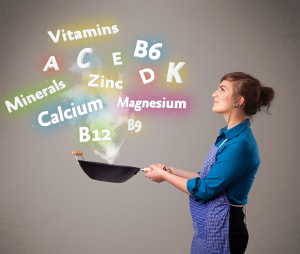 In ancient times when our ancestors hunted, they consumed every inch of the animal – from one end to another. Organ meat such as the liver, the heart, and the kidneys were delicacies that contained far more essential nutrients than other parts of the animal. In Western countries, we primarily consume muscle meat. In addition, animals often get unnatural fodder with suboptimal nutrient content. This results in deficiencies and an imbalance between amino acids and fatty acids. In the following article, you can read more about organ meats (also known as offal), bone marrow, and bone broth and their high content of essential amino acids, vitamin B12, iron, selenium, Q10, calcium, magnesium, collagen, glucosamine, CLA, and other vital nutrients. Also, you can read more about why it makes sense to choose meat from free-range livestock.
In ancient times when our ancestors hunted, they consumed every inch of the animal – from one end to another. Organ meat such as the liver, the heart, and the kidneys were delicacies that contained far more essential nutrients than other parts of the animal. In Western countries, we primarily consume muscle meat. In addition, animals often get unnatural fodder with suboptimal nutrient content. This results in deficiencies and an imbalance between amino acids and fatty acids. In the following article, you can read more about organ meats (also known as offal), bone marrow, and bone broth and their high content of essential amino acids, vitamin B12, iron, selenium, Q10, calcium, magnesium, collagen, glucosamine, CLA, and other vital nutrients. Also, you can read more about why it makes sense to choose meat from free-range livestock.







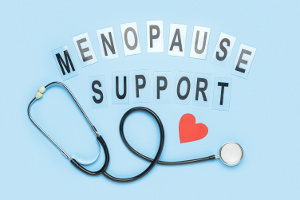
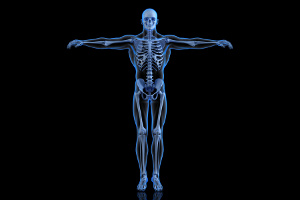 Bone fractures can be fatal, especially in old age where hip fractures typically result in hospitalization and early death. According to a study from Edith Cowan University in Australia, increased intake of
Bone fractures can be fatal, especially in old age where hip fractures typically result in hospitalization and early death. According to a study from Edith Cowan University in Australia, increased intake of 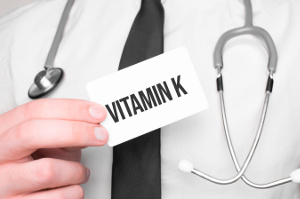

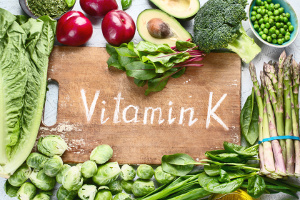 The risk of dementia and neurological disorders increases with age. Diet plays an important role and it is assumed that the widespread lack of
The risk of dementia and neurological disorders increases with age. Diet plays an important role and it is assumed that the widespread lack of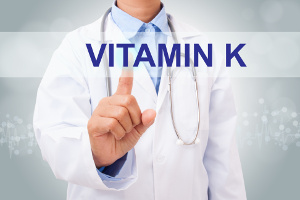 Cardiovascular diseases are the leading cause of death and, as it turns out, alarming problems with
Cardiovascular diseases are the leading cause of death and, as it turns out, alarming problems with  Some people prefer to eat raw vegetables in combination with meat or fish or as entirely raw vegan diets. They believe it is healthier and delivers more energy. But the truth is that some vegetables are healthier and provide more antioxidants if you heat them. That’s the case with tomatoes, bell pepper, carrots, spinach, and mushrooms. And remember that raw mushrooms contain toxins that are broken down by cooking.
Some people prefer to eat raw vegetables in combination with meat or fish or as entirely raw vegan diets. They believe it is healthier and delivers more energy. But the truth is that some vegetables are healthier and provide more antioxidants if you heat them. That’s the case with tomatoes, bell pepper, carrots, spinach, and mushrooms. And remember that raw mushrooms contain toxins that are broken down by cooking. "After about one week of taking the Q10 supplement I could feel a huge difference," says 23-year old Alan Piccini, who has been suffering from extreme fatigue and muscle aches ever since he was a child.
"After about one week of taking the Q10 supplement I could feel a huge difference," says 23-year old Alan Piccini, who has been suffering from extreme fatigue and muscle aches ever since he was a child. “Taking capsules with co-enzyme Q10 has freed me of the severe side effects of my cholesterol lowering medicine,” Mrs Franken explains.
“Taking capsules with co-enzyme Q10 has freed me of the severe side effects of my cholesterol lowering medicine,” Mrs Franken explains.